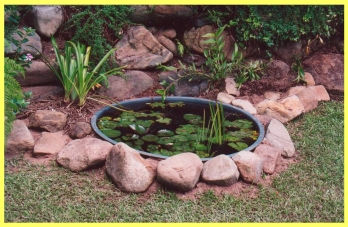As I have worked through the tasks and readings for this subject I have come to realise that there is more to the internet than than just the technology. I was tweeting with fellow NET11 students about whether there was a task for Module 5. During the “conversation” the penny dropped. A good angle for this would be “Beyond the Tool Shed”.
If we think of technology as just a tool it limits our thinking to “How do we use it?” , rather than thinking “Why do we use it and how can we make it better”
The how implies that we just work out which buttons to push to make it work. Admittedly , we need to know the how to make it work. Helen Merrick (2004) in the ilecture on the Curtin website stated that new technology already had a social aspect to it when it was first introduced. I did not really understand this at first, (this is also part of the subject matter in NET12) but then with the help of a few examples this changed. The internet when it was first thought of was about sharing data /information between academics. The idea that the internet would become a prime means of communication and storage was not in the picture. These aspects of the internet came later as more people became familiar with the concepts and thought about what could be done.
 I digress from my original purpose of trying to come to grips with the metaphor ” Information ecology”. Merriam-Webster Online defines ecology as “the totality or pattern of relations between organisms and their environments”.
I digress from my original purpose of trying to come to grips with the metaphor ” Information ecology”. Merriam-Webster Online defines ecology as “the totality or pattern of relations between organisms and their environments”.
This helps us how? Nardi & O’Day (1999)
define an information ecology to be a system of people, practices, values, and technologies in a particular local environment. In information ecologies, the spotlight is not on technology, but on human activities that are served by technology.
Felix Stadler gives us 4 basic dimensions of an information ecology:
- interdependency
- change
- time-boundness
- differentiation
These 4 dimensions are similar in nature to the characteristics that Nardi and O’Day specify in their book Information Ecologies (1999). These were:
- System
- Diversity
- Co-evolution
- Keystone – Species
- Locality
You can read for yourself an extract at First Monday.
After you have read it , think about our class in Study period 4 in NET11. Our ecology is the members of our class (including tutors). We have all come together and have developed relationships between each other and are dependent on our tutors to guide us along our journey. We have also been dependent of the information that each of us has contributed in the various forums we have utilised (blogs, twitter,ICQ etc).
We all definitely are a very diverse group . We all come from different backgrounds and ranges of experience. I would find it difficult to say that we have not evolved over this study period. I know that I have learnt many new things and have grasped new tools to take away and experiment with. Some I have used during the last few months, others will be very useful as I think more about uses.
I puzzled a about a keystone species. The definition is a species that is crucial to the survival of the ecology. The easy answer is to say that Cynthia and Peter would cover that definition. But have a look through the discussion board. I think that we can honestly say that at various times each of us played that role at various times during the period, by giving advice and help to others in the group.
As to locality, you could argue that we are all in a different place, but I would argue that we have all come together in a place in cyberspace. Our physical locations may differ, but we all have a common location during this study period.
Nardi and O’Day summarise it well when they say :”only the participants of an information ecology can establish the identity and place of the technologies that are found there. Indeed, this is a responsibility, not just an opportunity. Designers of tools are responsible for providing useful and clear functionality, but they do not complete the job. As users of tools, we are responsible for integrating them into settings of use in such a way that they make sense for us.”
I argue that we in Study Period 4 have created our own information ecology. It has been a great pleasure studying along side you all.
 Subscribe to RSS Feed
Subscribe to RSS Feed